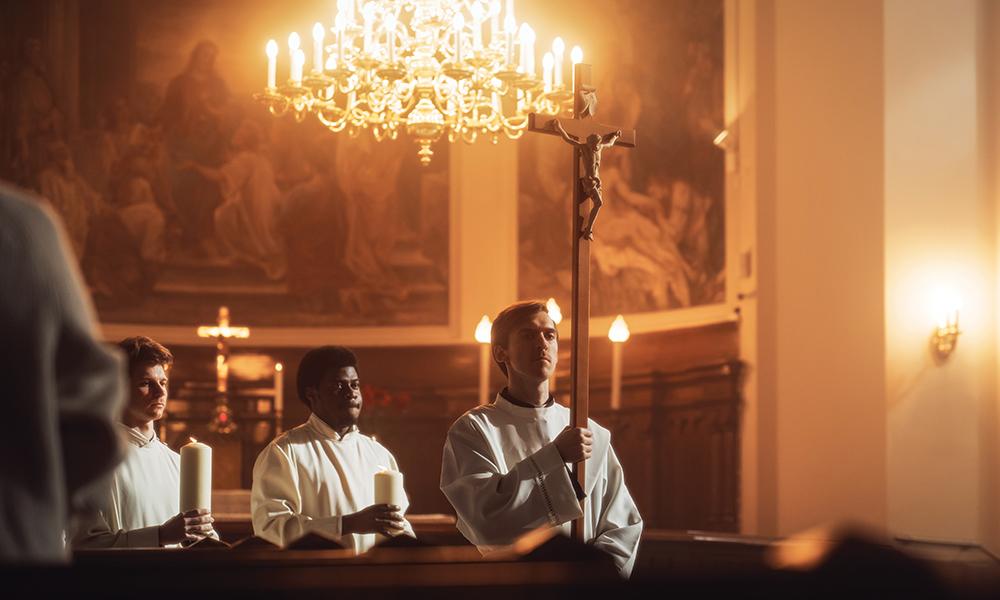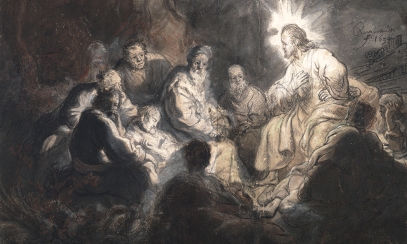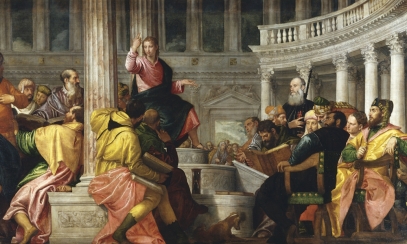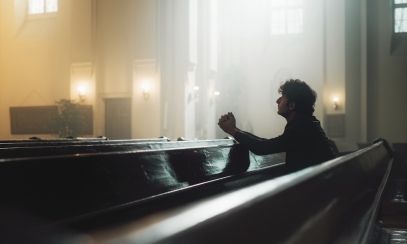
The entrance procession
Gift and victory
Gift and victory
The Church is in the midst of a National Eucharistic Revival. It will culminate in the first National Eucharistic Congress in the country in 83 years! We began the parish phase of this revival on June 11, the Solemnity of the Body and Blood of the Lord. I’d like to reflect on how the revival can bring about a “marriage and family revival” as well. In other words, how can the Mass influence family life?
The Church is in the midst of a National Eucharistic Revival. It will culminate in the first National Eucharistic Congress in the country in 83 years! We began the parish phase of this revival on June 11, the Solemnity of the Body and Blood of the Lord. I’d like to reflect on how the revival can bring about a “marriage and family revival” as well. In other words, how can the Mass influence family life?
The Eucharist is not simply something that families attend. St. John Paul II said the Eucharist is the source from which the marriage covenant “is interiorly structured and continuously renewed,” and is the source of its missionary dynamism (Familiaris Consortio 57).
The marriage covenant finds its structure and renewal in the Eucharist. Have you ever thought about that? Remember: marriage is the only one of the seven sacraments that preexists Jesus’ coming in the flesh. He takes something natural and elevates it to the dignity of a sacrament, a sacred outward sign of inward grace. St. John Paul II referred to marriage as the “primordial” sacrament; it is God’s sign in the world from the beginning. I find it very helpful to remember that the Eucharist and Holy Matrimony are mutually illuminating. To understand one, we want to understand the other, asking “How is the Eucharist nuptial? How is marriage eucharistic?”
So, for the next few columns, I’ll draw on some aspects of the Mass as a lens in which to understand the marriage covenant.
Mass begins with a procession. This is something we normally take for granted. However, the procession itself is symbolic of what we celebrate. When it comes to a procession, I think of two words: gift and victory.
In the beginning, God brings Eve to sleeping Adam. It is a type of procession as he comes bringing the gift Adam was longing for: “This at last is bone of my bones and flesh of my flesh” (Gen 2:23).
One of the names for the Holy Spirit is “Gift.” At Confirmation, the minister says, “Receive the Gift of the Holy Spirit.” He does not say, “receive the gifts of the Holy Spirit,” but rather “the Gift of the Holy Spirit.” The primary gift of Confirmation is the Gift of the Spirit himself. The Spirit is the one who proceeds from the Father and the Son. In every procession, we are mindful that the Father has given us a gift in uniting us to Our Lord Jesus Christ through the power of the Spirit. We have been made partners with God. I think in every procession, a couple wants to be mindful of that time when they processed down the aisle and were given to each other by God.
Processions also are symbolic of victories. Conquering kings would process into cities they had conquered or set free. When we process in with the Cross, we are acknowledging that Jesus Christ our King has conquered. Conquered what? The power of sin and death. This is important for families to understand as well.
In family life, there are many setbacks. Many disappointments and hurts are given and received in the course of life. So often, we come into Mass like the disciples on the road to Emmaus, with eyes looking downcast and feeling as if our hopes have been crushed— “We had hoped that he was the one to redeem Israel” (Luke 24:21).
The procession calls us to remember that no matter how many setbacks we might experience, it is victory and not defeat that characterizes our lives as Christians. Where in your family life right now are you only seeing defeat? The next time you witness the entrance procession, bring that feeling of defeat to the King of Kings, who is victorious.
Father Andy Laframboise is pastor of St. Elizabeth of Hungary Parish in Reese and St. Frances Xavier Cabrini Parish in Vassar and director of priestly vocations. He holds a licentiate in Sacred Theology in Marriage and Family Studies from the Pontifical John Paul II Institute for Studies on Marriage and Family.



